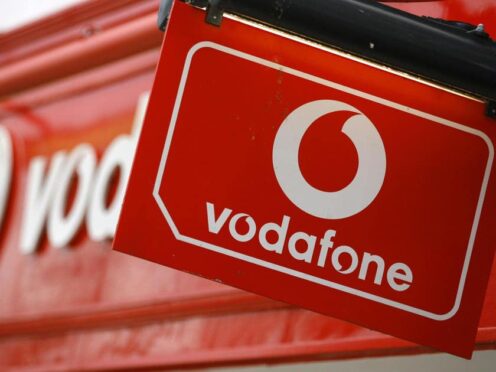
Vodafone has agreed an eight billion eight (£6.8 billion) deal to sell its Italian business to Switzerland’s Swisscom.
The mobile phone giant said it plans to hand four billion euros (£3.4 billion) back to shareholders through a buyback following the sale.
It comes two weeks after the telecoms firms first confirmed they were in discussions over a potential deal.
On Friday, London-listed Vodafone said the move represented an “attractive valuation” and marked the final step of its strategy to sell off parts of its European portfolio.
Swisscom will pay 100% cash in a move which will be fully debt-financed.
As part of the transaction, the two firms have agreed that Vodafone will continue to provide “certain services” to Swisscom over the next five years.
Swisscom will pay annual charges of around 350 million euros (£299 million).
Vodafone added that the two companies are also “exploring a closer commercial relationship to enable collaboration across a broad range of areas, beyond Italy”.
Margherita Della Valle, group chief executive of Vodafone, said: “Today, I am announcing the third and final step in the reshaping of our European operations.
“Going forward, our businesses will be operating in growing telco markets – where we hold strong positions – enabling us to deliver predictable, stronger growth in Europe.
“The sale of Vodafone Italy to Swisscom creates significant value for Vodafone and ensures the business maintains its leading position in Italy, which has been built through the dedicated commitment of our colleagues to serving our customers over many years.”
Vodafone has been looking to free up cash and improve its financial performance by selling off parts of the business, including its Spanish arm, having previously struck deals to sell its Hungarian and Ghanaian divisions.
Its refreshed strategy has also seen it seek to merge its UK business with Three UK to create Britain’s biggest mobile phone network worth £15 billion.
The proposed merger of the networks is set to be formally investigated by the UK’s competition regulator over concerns it could substantially reduce options for mobile customers, but Vodafone is hoping to complete the tie-up by the end of the year.
It is also planning to cut about 11,000 jobs over three years as part of efforts to simplify the global business, which could affect markets worldwide.
About a third of the role reductions had already been completed by January this year.

Enjoy the convenience of having The Sunday Post delivered as a digital ePaper straight to your smartphone, tablet or computer.
Subscribe for only £5.49 a month and enjoy all the benefits of the printed paper as a digital replica.
Subscribe